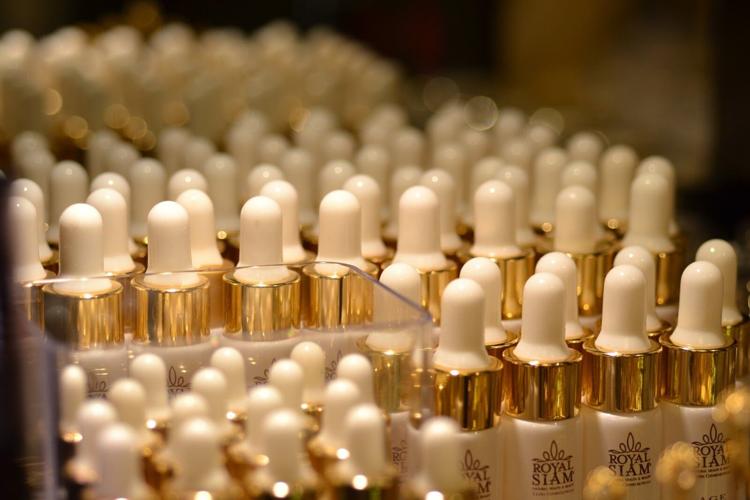If you are just starting out and going through the myriad of products and advice available, you want to build the right skincare routine from scratch. Understand your skin type, identify its needs, and employ a few simple steps to create a personalized regimen that adds to your complexion and promotes skin health.
Preparation is key, and in the following sections, you’ll discover the necessary components of an effective skincare routine, including the importance of cleansing, hydrating, and protecting your skin against environmental factors. Look no further!

Know Your Skin Type
The first step in creating an effective skincare routine is to determine your skin type. Skin types fall into four categories: normal, oily, dry, or a combination of these. Normal skin has a balanced texture and minimal imperfections. Oily skin appears shiny and is prone to acne, whereas dry skin may feel tight, flaky, or lack elasticity. Combination skin can exhibit characteristics of all these types, with oily zones in the T-zone.
Determining your skin type involves observing how your skin reacts without products throughout the day. Take note of how much moisture your skin retains and its behavior in different climates. This information will guide you in selecting the right products tailored to your skin's unique needs.
Choosing the Right Makeup Products
Makeup can be a fun way to express yourself, but for those with sensitive or problematic skin, the best course of action is to choose the right products. Opt for hypoallergenic and non-comedogenic options to prevent clogging pores and causing breakouts. Look for pure mineral makeup options, which contain fewer irritants and can be more gentle on the skin. Incorporating products with nourishing ingredients like hyaluronic acid or natural oils can maintain moisture levels.
If you have a history of skin sensitivity, test new makeup on a small area of skin first to gauge any possible reactions. Having a collection of makeup that complements your skincare goals is as crucial as the skincare routine itself. If you’re looking to refresh your beauty kit without overspending, the cosmetic Black Friday sale is a great time to find quality skincare and makeup products at discounted prices.
The Importance of Cleansing
Cleansing is the most crucial step in any skincare routine. Remove dirt, oil, and impurities from the skin, which can clog pores and lead to acne. A good cleanser prepares your skin to absorb the subsequent products effectively. Choose the right cleanser tailored to your skin type. Gel cleansers work well for oily skin as they remove excess sebum; cream cleansers are more suitable for dry skin as they provide added moisture.
When cleansing, focus on technique and take your time to guarantee thorough removal of makeup and impurities. Avoid harsh scrubs that can damage the skin barrier. Instead, utilize circular motions with your fingertips to gently cleanse. Wash your face twice a day, once in the morning to get rid of overnight oils and once before bed to cleanse the day's dirt and makeup. Timely cleansing can improve skin clarity and set a solid foundation for the rest of your skincare routine.
Exfoliation
Exfoliation is the process of removing dead skin cells from the surface of your skin, helping to reveal a brighter and smoother complexion. Exfoliation should be done two to three times a week, depending on your skin's sensitivity and type. Oily skin may benefit from more frequent exfoliation, yet those with dry or sensitive skin should opt for gentler formulas or less frequent use. Regular exfoliation can improve the effectiveness of other skincare products by allowing them to penetrate deeper into the skin.
Many products are formulated with exfoliating ingredients like alpha and beta hydroxy acids, which can promote cell turnover. Listen to your skin and adjust your exfoliation routine accordingly, as over-exfoliation can lead to irritation and compromise your skin barrier.
Moisturizing
Regardless of your skin type, hydration maintains a healthy skin barrier. For oily skin, lightweight gel moisturizers can hydrate without feeling heavy or greasy, whereas dry skin requires thicker creams that provide a richer moisture barrier. Combination skin can opt for balancing formulas that offer hydration without over-emphasizing either end of the spectrum. Moisturizers seal in hydration and protect the skin from environmental aggressors. When applying moisturizer, focus on areas prone to dryness and apply in gentle, upward strokes.
Indulge in a serum in your routine to target specific concerns like acne or aging. Serums can boost the moisture levels in your skin and add a layer of active ingredients. Adapting your moisturizer choice through different seasons can prove beneficial. You can transition to a heavier cream during colder months.
Sun Protection
Sun protection is an indispensable part of any skincare regimen because of the harmful effects of UV rays. Prolonged exposure to the sun can cause premature aging, hyperpigmentation, and even skin cancer. Apply a broad-spectrum sunscreen with at least SPF 30 daily, even on cloudy days or when indoors, as UV rays can penetrate windows. When selecting a sunscreen, consider both chemical and physical options; physical sunscreen contains active mineral ingredients like zinc oxide or titanium dioxide that sit on top of the skin to reflect and scatter UV rays.
Remember to reapply sunscreen every two hours if you’re outdoors. Wear hats and sunglasses and seek shade when necessary. Making sun protection a non-negotiable step in your skincare routine can mitigate skin damage and maintain youthful-looking skin.
Seeking Professional Guidance
If you're unsure about your skin type or feel overwhelmed by the choices available, consulting with a dermatologist or skincare professional can provide personalized insight. They can evaluate your skin and recommend products that align with your skincare goals. Professional guidance can help those with specific skin concerns such as acne, rosacea, or eczema. Incorporating professional advice can streamline your skincare routine by focusing on effective products tailored to your needs.
Many dermatologists offer chemical peels and microdermabrasion, which can boost results beyond regular at-home care. Understanding the science behind skincare can elevate your regimen and improve its effectiveness with the right professional support.

To build a skincare routine, tailor your approach based on your individual skin’s needs and professional recommendations. Maintaining a skincare routine doesn’t require an endless array of products but rather a commitment to providing your skin with the care it deserves. Once you understand your skin type and examine each element of your regimen, you can create a routine that promotes healthy and radiant skin. Remember to cleanse, exfoliate, moisturize, protect, and seek guidance if needed.



(0) comments
We welcome your comments
Log In
Post a comment as Guest
Keep it Clean. Please avoid obscene, vulgar, lewd, racist or sexually-oriented language.
PLEASE TURN OFF YOUR CAPS LOCK.
Don't Threaten. Threats of harming another person will not be tolerated.
Be Truthful. Don't knowingly lie about anyone or anything.
Be Nice. No racism, sexism or any sort of -ism that is degrading to another person.
Be Proactive. Use the 'Report' link on each comment to let us know of abusive posts.
Share with Us. We'd love to hear eyewitness accounts, the history behind an article.